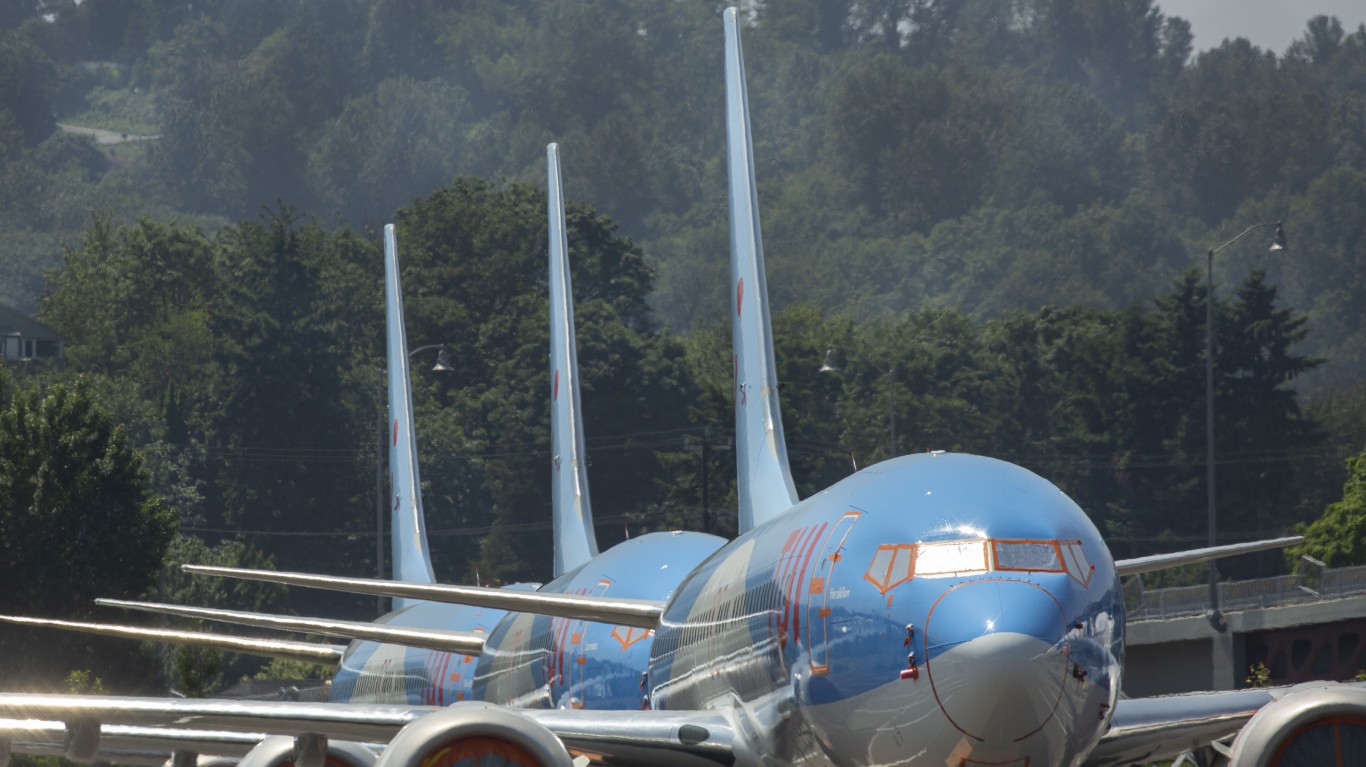
Boeing Co. (NYSE: BA) reported fourth-quarter and full-year 2020 results before markets opened on Wednesday. For the quarter, the aerospace company posted an adjusted diluted per-share loss of $15.25 on revenue of $15.3 billion. In the same period a year ago, the company reported a loss per share of $1.79 on revenue of $17.9 billion. Fourth-quarter results also compare to consensus estimates for a per-share loss of $1.80 on revenue of $15.1 billion.
For the full year, Boeing reported an adjusted per-share loss of $23.25 and revenue of $58.2 billion. Analysts had forecast a loss of $9.73 per share and $57.9 billion in revenue.
The fourth-quarter loss included pretax charges of $6.5 billion to the 777X program, $275 million on the KC-46A military tanker and $290 million for asset impairments caused by the COVID-19 pandemic.
Free cash flow for the quarter was negative $4.3 billion and $19.7 billion for the full year. In 2019, full-year free cash flow totaled negative $4.3 billion.
The worse news for Boeing is that first deliveries of its 777X commercial jet have been pushed out again. Originally scheduled to begin service in 2020, the date was later pushed out to 2022 before Wednesday’s announcement that first deliveries won’t occur before late 2023.
Boeing posted a net loss for the year of $11.9 billion and an operating loss of $18.4 billion. The company ended the fiscal year with $47.2 billion in new debt. At the end of the quarter, Boeing reported $7.8 billion in cash and equivalents and $17.8 billion in short-term investments. Long-term debt totaled nearly $62 billion.
Boeing also noted that low production rates of the 737 Max have led to “abnormal production costs” of about $5 billion for 2020 and 2021. The company’s commercial division expensed about $2.6 billion of those costs in the 2020 fiscal year. These costs included reductions for payments made by customers and reductions for concessions and other in-kind considerations negotiated with customers.
The best news for Boeing came shortly before the company announced results. The European Union civil aviation regulator has approved the 737 Max to resume commercial service. The aircraft already has been recertified in the United States and Brazil, and some U.S. carriers already have begun flying the 737 Max again.
The massive quarterly loss and the new delay to 777X deliveries are sending investors to the sidelines. Boeing’s shares traded down nearly 44% early Wednesday after closing at $202.06 on Tuesday. The stock’s 52-week range is $89.00 to $349.95, and its consensus price target is $232.26. Boeing last paid a dividend for the fourth quarter of 2019.
Take Charge of Your Retirement In Just A Few Minutes (Sponsor)
Retirement planning doesn’t have to feel overwhelming. The key is finding expert guidance—and SmartAsset’s simple quiz makes it easier than ever for you to connect with a vetted financial advisor.
Here’s how it works:
- Answer a Few Simple Questions. Tell us a bit about your goals and preferences—it only takes a few minutes!
- Get Matched with Vetted Advisors Our smart tool matches you with up to three pre-screened, vetted advisors who serve your area and are held to a fiduciary standard to act in your best interests. Click here to begin
- Choose Your Fit Review their profiles, schedule an introductory call (or meet in person), and select the advisor who feel is right for you.
Why wait? Start building the retirement you’ve always dreamed of. Click here to get started today!
Thank you for reading! Have some feedback for us?
Contact the 24/7 Wall St. editorial team.
 24/7 Wall St.
24/7 Wall St.
